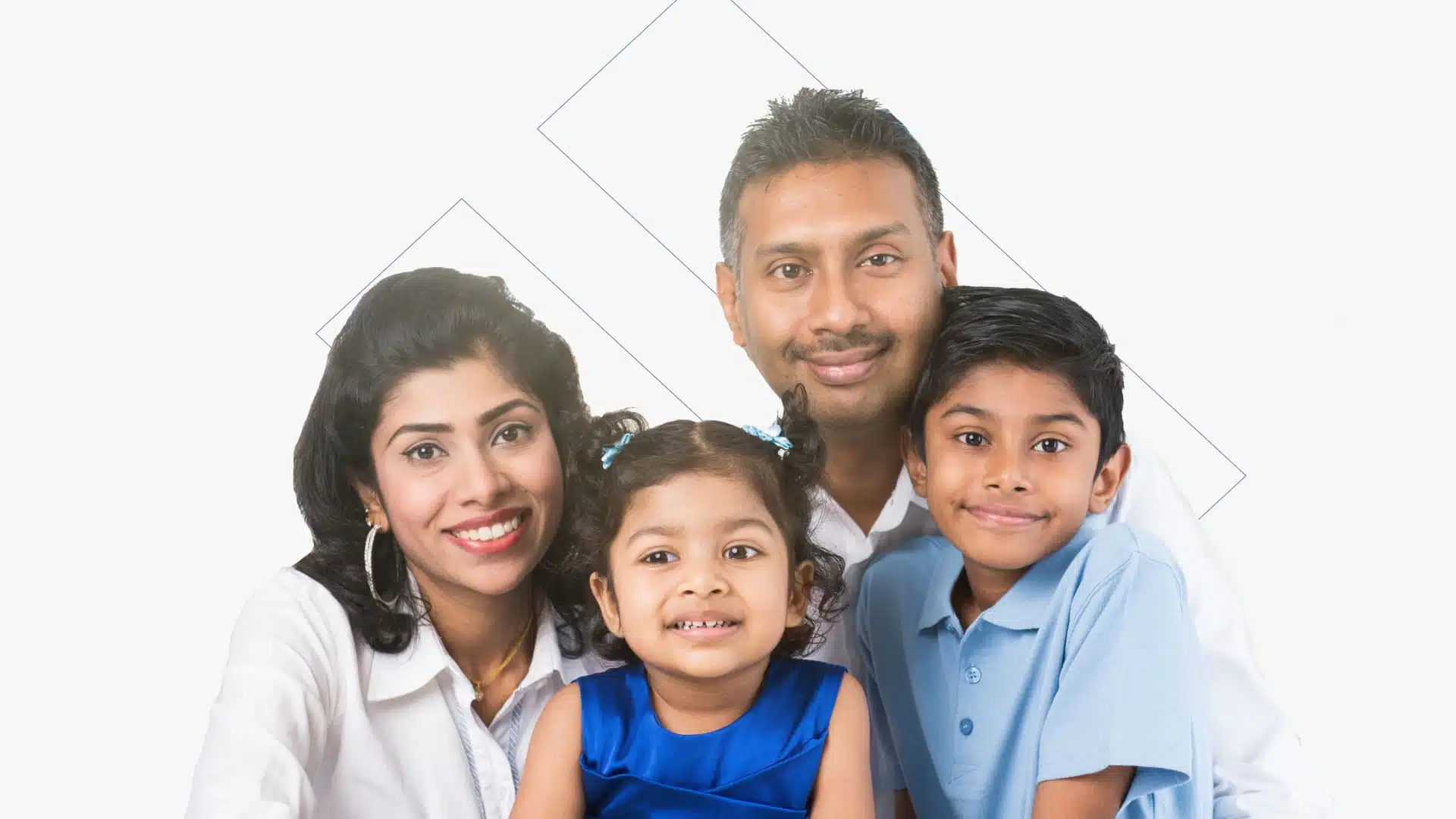D7 Visa to Portugal: how a family with children moved to Europe from Bangladesh
I decided to move to Portugal with my family as I wanted to improve the quality of our lives. I could afford it, and I wasn’t tied to business anymore.
But obtaining residency seemed so complex and inconvenient that I almost gave up the idea. I believed I had to go to the Portuguese consulate in India and stay in the country for a couple of months.
At the consultation with Immigrant Invest, I learned the process would be simpler than expected. I just needed to have a short trip to India, not stay there. The lawyers also showed an easier way of getting residence permits for my family members and made many preparations by proxy, without my participation and visits to Portugal. It helped me a great deal.

Sabbir,
Investor in real estate and securities
Clients’ names and photos have been changed

This case was provided by our expert

Legal and Compliance Officer
D7 Visa to Portugal: how a family with children moved to Europe from Bangladesh
Investor’s task
Sabbir is an investor from Bangladesh. He used to be a top manager at a large insurance company but withdrew from the business several years ago.
Now Sabbir does not work. He earns a living by investing in securities and real estate, which he rents out. His passive income is around €2,500 a month.
The investor turned to Immigrant Invest when he decided to move to Portugal with his family: his wife and two children. He learnt about a Portuguese special visa for financially independent persons from our website and wanted to obtain it.
Sabbir’s goal was to not only move to Portugal but acquire this country’s citizenship in the future. At the consultation, our investment program expert confirmed that a Portugal D7 Visa was the appropriate first step to reach the investor’s purpose.

At first, the investor decided to live in the old part of Porto to feel the atmosphere of the city. In the future, he plans to buy an apartment in a new residential complex in a modern district
Checking Sabbir’s eligibility for a D7 Visa
To be eligible for Portugal residency for financially independent persons, Sabbir needed to prove he earned enough money by Portuguese standards.
The requirement was to make a minimum of €705 per month outside Portugal. Another 50% of this amount was needed for the spouse and 30% for each child. The applicant must transfer an amount sufficient for their family to live for a year to an account in a Portuguese bank before applying for a visa.
We calculated the requirements for Sabbir’s family. He was required to earn a minimum of €1,480.5 a month, which he did. And he needed to transfer at least €17,766 to Portugal, which he could afford.
On our part, we ran the preliminary Due Diligence check on Sabbir, which could reveal the risks of the investor’s application being denied. The investor had no convictions or Schengen visa refusals and earned income legally. So, the check showed no red flags.
Sabbir was ready to start preparations, but an issue arose.
How to get a D7 Visa to Portugal if there is no Portuguese consulate in your country
The D7 Visa is an entry visa issued for financially independent persons who are going to immigrate to Portugal. When foreigners cross the Portuguese border on a D7 Visa, they get the right to apply for residence permits.
To obtain a D7 Visa, applicants must apply to the Portuguese consulate allocated to their home country. This consulate can be located in the applicant’s country or one of the neighbouring countries in case there is no consulate in the country of residence.
Sabbir lived in Bangladesh, where there was no Portuguese consulate. He had to apply in India, and he was worried he had to stay in India until the visa was issued.

Vladlena Baranova,
Lawyer, AML Compliance officer, certified CAMS specialist
The good news is that such a case, an applicant does not have to leave their passport at the consulate when they submit documents — they only need to present it. When the visa application has been processed, the applicant again visits the consulate with their passport to have the visa affixed.
So, Sabbir needed to visit the Portuguese consulate in India twice: to file an application and then to receive the visa. Between these events, he could go home to Bangladesh. It was not very inconvenient for the investor: he could afford these trips.
Another question was how to get residence permits in Portugal for Sabbir’s family.
Two ways how a D7 Visa applicant can add their family members
The investor’s family could get Portuguese residence permits in two different ways.
The first option was to obtain D6 Visas from the Portuguese consulate as Sabbir’s accompanying family members. The second option was to skip the stage of obtaining D6 Visas and get Portuguese residency by family reunification. In both cases, the whole family would move to Portugal and receive residence permits simultaneously.
The difference between the two options is in the following. In the first case, the period of residence for applying for citizenship would be calculated from the date D visas were issued. In the second case, this period would be calculated from the date the residence permits were issued, so it would take several months longer to obtain citizenship in the future.

Vladlena Baranova,
Lawyer, AML Compliance officer, certified CAMS specialist
Those applicants who have a Portuguese consulate in their home countries usually prefer getting D Visas for the whole family as this way will lead them to Portugal citizenship faster. But in Sabbir’s case, the second way would be easier to implement.
If Sabbir’s family apply for family reunification, they will not have to go to India. It will be enough if Sabbir does it and receives a D7 Visa alone. His wife and children will be allowed to apply for residency after they enter Portugal on a Schengen visa, which they can obtain in Bangladesh.
The investor could go to India as he was not tied to work, while it would be inconvenient for his family. Sabbir did not want his eldest son to miss school as he could start lagging behind. And his daughter needed regular visits to the doctor.
When Sabbir learned his family were not obliged to apply to the consulate in India, he made the final decision to move to Portugal through a D7 Visa and signed a Services Agreement with Immigrant Invest.
How to extend a Schengen visa up to the time you receive a residence permit card
On their Schengen visas, Sabbir’s family was allowed to stay in Schengen for a maximum of 90 days within half a year. However, obtaining residence permits takes longer, so they feared overstaying their visas and being deported.
The good news is that in Portugal, foreigners can extend their stay. You can do it twice for 90 days each time, even if the Schengen visa was issued by another country. But after the extension, you can only stay in Portugal and cannot travel to other Schengen countries on this visa.
Since mid‑2020, a visa amnesty has been in effect in Portugal, so Sabbir’s family’s visas were extended automatically. They did not have to apply for an extension to the immigration office.
How Sabbir’s family obtained Portugal residence permits
To get residence permits in Portugal for the whole family, Sabbir spent €21,210 and 10 months.
June 10th, 2022
Sabbir signed a Services Agreement with Immigrant Invest
Before signing the agreement, Sabbir underwent a preliminary Due Diligence check.
Before signing the agreement, Sabbir underwent a preliminary Due Diligence check.
+ 1.5 months
Transferring money to Portugal, €18,000
To transfer the required money, Sabbir needed to open an account in a Portuguese bank. For that, he also needed to get a NIF, an individual taxpayer number in Portugal.
Immigrant Invest lawyers handled both tasks by proxy. Sabbir did not have to come to Portugal at this stage.
When the account was opened, the investor transferred €18,000. He would be able to spend this money after receiving a residence permit.
To transfer the required money, Sabbir needed to open an account in a Portuguese bank. For that, he also needed to get a NIF, an individual taxpayer number in Portugal.
Immigrant Invest lawyers handled both tasks by proxy. Sabbir did not have to come to Portugal at this stage.
When the account was opened, the investor transferred €18,000. He would be able to spend this money after receiving a residence permit.
+ 2 weeks
Renting housing, €2,500
As Sabbir was a real estate investor, he planned to buy property in Portugal. However, it was inconvenient for him to visit the country at this stage, and he did not want to make such a serious decision without examining properties in person. So, the investor chose to rent an apartment for the first time, and purchase real estate after the move.
Immigrant Invest real estate experts selected several apartments for Sabbir. The investor opted for a 3-bedroom apartment in Porto for €1,250 monthly.
Our lawyer signed a lease agreement on Sabbir’s behalf, and the investor made payment for the first two months of rent.
As Sabbir was a real estate investor, he planned to buy property in Portugal. However, it was inconvenient for him to visit the country at this stage, and he did not want to make such a serious decision without examining properties in person. So, the investor chose to rent an apartment for the first time, and purchase real estate after the move.
Immigrant Invest real estate experts selected several apartments for Sabbir. The investor opted for a 3-bedroom apartment in Porto for €1,250 monthly.
Our lawyer signed a lease agreement on Sabbir’s behalf, and the investor made payment for the first two months of rent.
+ 4 months
Applying for a D7 Visa, €90
We helped Sabbir collect the documents, fill in the visa application form and make an interview appointment at the Portuguese consulate in Delhi. He went to India and applied.
The package of documents included the following:
visa application form;
passport;
two photos;
medical insurance;
certificate of no criminal record in Bangladesh;
individual taxpayer numbers in Portugal and Bangladesh;
bank statement from the account in a Portuguese bank showing the presence of the required amount of money;
proof of the required income;
lease agreement;
receipt of payment of the €90 visa fee.
Sabbir’s application was considered for 3 months. After that, he came to Delhi again and had the visa affixed to his passport.
We helped Sabbir collect the documents, fill in the visa application form and make an interview appointment at the Portuguese consulate in Delhi. He went to India and applied.
The package of documents included the following:
visa application form;
passport;
two photos;
medical insurance;
certificate of no criminal record in Bangladesh;
individual taxpayer numbers in Portugal and Bangladesh;
bank statement from the account in a Portuguese bank showing the presence of the required amount of money;
proof of the required income;
lease agreement;
receipt of payment of the €90 visa fee.
Sabbir’s application was considered for 3 months. After that, he came to Delhi again and had the visa affixed to his passport.
+ 4 months, March 15th 2023
Getting residence permits, €620
Sabbir’s family entered Portugal: the investor on a D7 Visa and his wife and children on their French Schengen visas, which they had valid.
We booked an appointment at SEF, the Portuguese Immigration and Borders Service. Accompanied by our lawyer, the investor’s family applied for residence permits.
Sabbir paid €620 in fees: €83 per person as the processing fee and €72 per person as the fee for issuing a residence permit card.
When their application was approved, they received residence permit cards by courier at their address in Porto.
Sabbir’s family entered Portugal: the investor on a D7 Visa and his wife and children on their French Schengen visas, which they had valid.
We booked an appointment at SEF, the Portuguese Immigration and Borders Service. Accompanied by our lawyer, the investor’s family applied for residence permits.
Sabbir paid €620 in fees: €83 per person as the processing fee and €72 per person as the fee for issuing a residence permit card.
When their application was approved, they received residence permit cards by courier at their address in Porto.
Sabbir’s family life in Portugal and citizenship prospects
The family has settled in Porto. Their son entered a private primary school, and their daughter — a kindergarten. Sabbir started to look for a property to buy. His wife signed up for the language courses.
With a Portuguese residence permit, Sabbir’s family also have the opportunity to travel to Schengen without visas. This is a pleasant bonus to their relocation.
Their residence permits are valid for 2 years. To maintain the status, they must spend over 183 days per year uninterrupted or 8 months in the aggregate in Portugal. To stay in the country further, they will need to renew their residence permits.
In 2023, the minimum wage rate increased from €705 to €760 per month. It means to renew residence permits, Sabbir will have to meet the new requirements: prove a monthly income of €1,596 and demonstrate over €19,152 in his account.
After renewal, Sabbir’s family will again receive residence permits valid for 2 years. Upon the next renewal, they will get cards valid for 1 year. Thus, the period of their residence in total will be 5 years, which is sufficient to qualify to apply for Portuguese citizenship. To obtain it, the spouses will have to take the Portuguese language exam.
Immigrant Invest is a licensed agent for government programs in the European Union and the Caribbean.

















